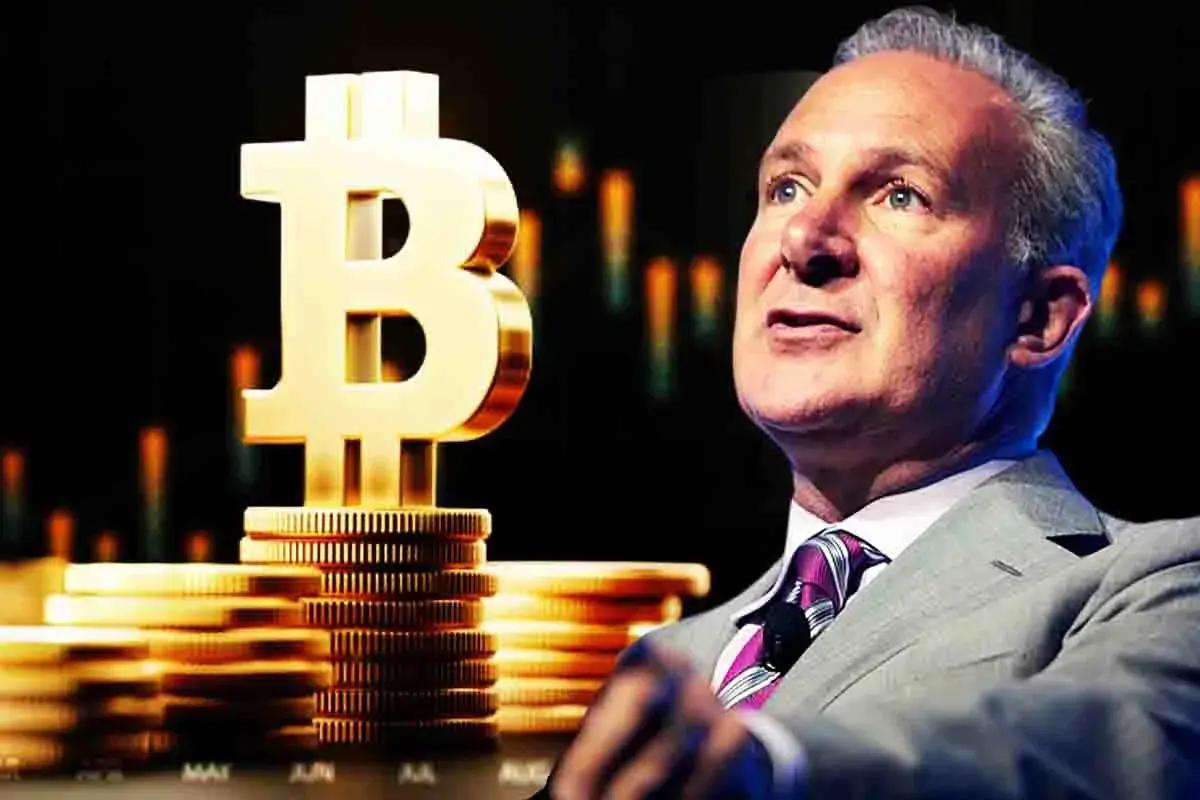Peter Schiff Slams Stablecoins Use In The US Amid Stablecoin Bill Debate

Highlights
- Peter Schiff says stablecoins don’t aid the U.S. economy, calling them tools for crypto speculation.
- The GENIUS Act may ban yield-bearing stablecoins, sparking fears of crypto innovation moving offshore.
- Senator Hagerty says no stablecoin meets GENIUS Act rules yet, but sets a global enforcement benchmark.
Peter Schiff, an economist and gold advocate, has criticized the increasing use of stablecoins in the United States. His remarks come as the Senate continues discussions around the proposed stablecoin bill, known as the GENIUS Act. One of the most debated points in the bill is whether yield-bearing stablecoins should be allowed under U.S. regulation.
Peter Schiff Warns Against Stablecoin Amid Stablecoin Bill Debate
In a post shared on X, Peter Schiff stated that U.S. dollar stablecoins “won’t do anything to help the U.S. economy or finance the U.S. government’s exploding deficits.” He added that “the primary use of stablecoins will be as trading pairs with other crypto tokens, mainly Bitcoin.” Schiff emphasized that stablecoins serve to bring more money into what he called a “crypto casino,” not to improve the financial system.
Peter Schiff has remained consistent in his criticism of cryptocurrency-related products. He repeated that they would remove capital from traditional financial systems while creating new risks.
His statement comes amid broader discussion on the GENIUS Act, a stablecoin bill that would regulate the issuers and possibly ban interest-bearing stablecoins. Peter Schiff supports those who believe that stablecoins do not benefit the economy and should not offer interest returns, which he sees as another lure for speculation.
Debate Grows Around Yield-Bearing Stablecoins in the GENIUS Act
The GENIUS Act proposes that all stablecoins must be fully backed by cash or U.S. Treasury assets and subject to strict regulatory standards. One of its most controversial parts is a ban on yield-bearing or interest-paying stablecoins. Supporters of the ban, including some Democrats and bank lobbyists, say this would prevent unfair competition with traditional banks and protect depositors.
Senator Bill Hagerty, who helped lead the legislative effort in the Senate, commented on the matter during an interview on Squawk Box. He stated, “If we have a high standard, the world will come to that high standard for enforcement and for definition.” He acknowledged that no existing stablecoin fully complies with the proposed stablecoin legislation but said the bill is designed to provide clarity and protect the dollar’s global role.
When asked about the possibility of stablecoins offering interest, Hagerty said they would be required to meet strict U.S. standards if included. He noted, “If the Trump coin can meet that definition, so be it,” showing openness to innovation as long as regulations are followed.
Critics Say Banning Yield Could Push Innovation Offshore
While Peter Schiff opposes stablecoins entirely, many in the crypto industry are concerned that banning yield-bearing versions would drive issuers and users overseas. These critics say that if foreign stablecoin issuers can offer yield, U.S.-based products would lose competitiveness falling behind Donald Trump’s vision of US leading the crypto industry.
Austin Campbell, a professor at NYU, warned that offshore products would quickly outpace U.S. ones. He noted that yield-bearing stablecoins outside the U.S. would continue to attract users while those inside the country would be limited. Omid Malekan, from Columbia Business School, also stated that banning yield does not stop interest income—it only prevents American users from receiving it.
Amid this development, the GENIUS Act remains under review in the Senate, and lawmakers are debating possible amendments. Two proposals, one to cap credit card interest rates and another to change interchange fees, could affect the Stablecoin bill’s chances.
Play 10,000+ Casino Games at BC Game with Ease
- Instant Deposits And Withdrawals
- Crypto Casino And Sports Betting
- Exclusive Bonuses And Rewards

- Peter Brandt Flips Bullish, Predicts Bitcoin Rally As Price Holds Above $70k
- XRP News: Institutional Use Case Expands as Doppler Finance Integrates WXRP for Multi-Chain Access
- Trump Tariffs: Bitcoin Faces Fresh Headwinds as 15% Global Tariffs Begin This Week Amid Iran War
- Bitget Unveils ‘Crypto Anti-Bias Pledge’ To Support Women’s Inclusion In Crypto
- U.S.-Iran War: Crypto Market Rebounds as Iran Reportedly Reaches Out To U.S. To End Conflict
- XRP Price Prediction as Iran-U.S. Peace Talks Trigger a Crypto Rally
- COIN Stock Analysis as Bitcoin Retests $72k Ahead of February NFP Data
- Robinhood Stock Price Prediction As Cathie Wood Buys $12M Dip in Bold ARK Move
- Bitcoin Price At Risk? Professor Who Predicted US-Iran War Says America Could Lose
- Gold Price Prediction March 2026: Rally, Crash, or Record Highs?
- RIOT Stock Prediction as Needham, Piper Sandler Slash Target After Earnings

 Buy $GGs
Buy $GGs

















